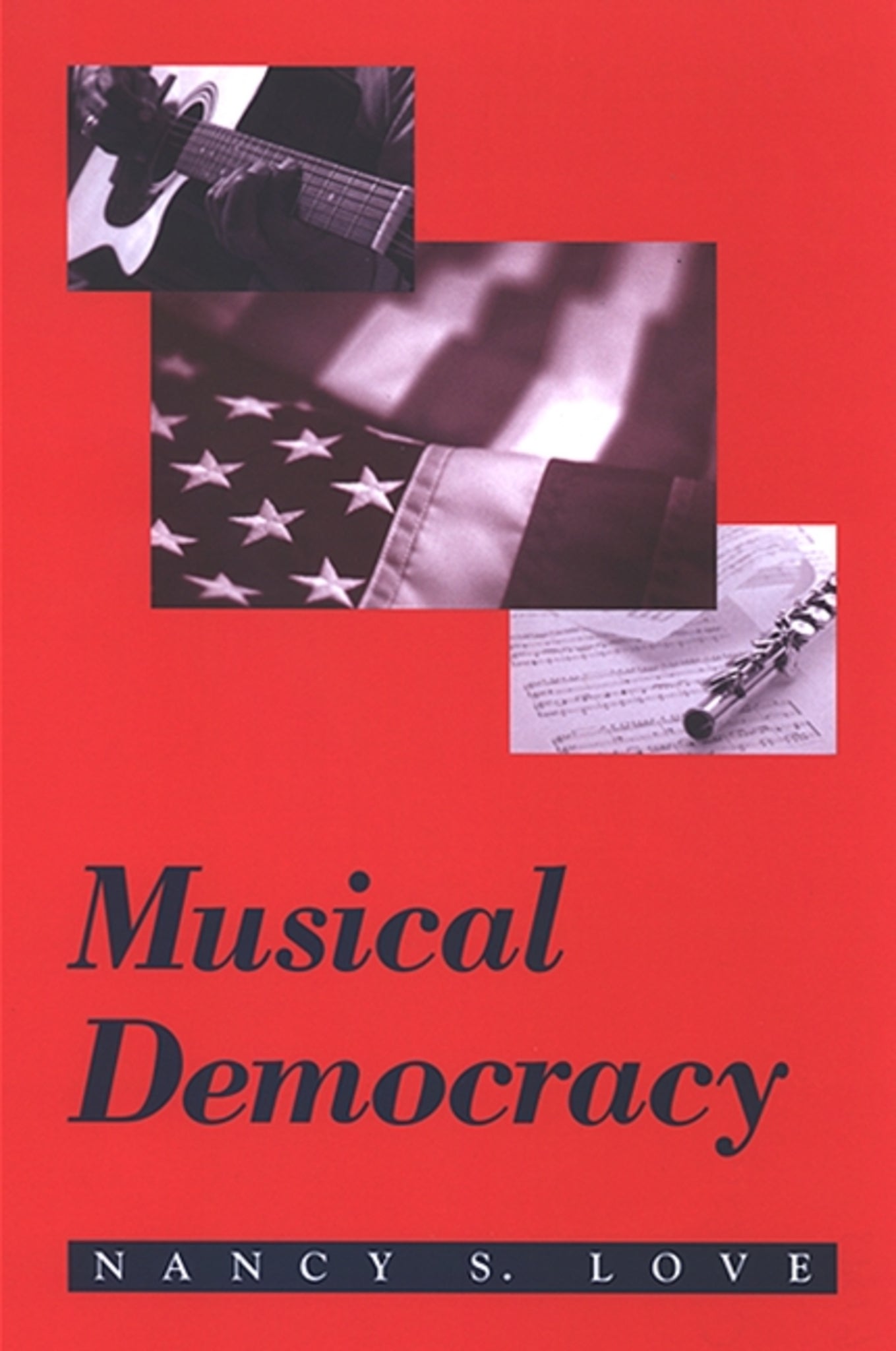We're sorry. An error has occurred
Please cancel or retry.
Musical Democracy

Some error occured while loading the Quick View. Please close the Quick View and try reloading the page.
Couldn't load pickup availability
- Format:
-
31 August 2006

How music functions as a metaphor and model for democracy.
Musical metaphors abound in political theory and music often accompanies political movements, yet music is seldom regarded as political communication. In this groundbreaking book, Nancy S. Love explores how music functions as metaphor and model for democracy in the work of political theorists and activist musicians. She examines deliberative democratic theorists-Jürgen Habermas and John Rawls-who employ musical metaphors to express the sense of justice that animates their discourse ideals. These metaphors also invoke embodied voices that enter their public discourse only in translation, as rational arguments for legal rights. Love posits that the music of activists from the feminist and civil rights movements-Holly Near and Bernice Johnson Reagon-engages deeper, more fluid energies of civil society by modeling a democratic conversation toward which deliberative democrats' metaphors merely suggest. To omit movement music from politics is, Love argues, to refuse the challenges it poses to modern, rational, secular, Western democracy. In conclusion, Musical Democracy proposes that a more radical-and more musical-democracy would embrace the spirit of humanity which moves a politics dedicated to the pursuit of justice.


"As a person who has studied both translation and international relations, this book to me was an academically revealing masterpiece, combining two very different fields in the most inspiring way. Just open your ears and listen because music is indeed everywhere!" — Valentina Koumoulou, Greater European Journal
Acknowledgments
1. Music and Democracy
2. Habermas’s Voices: Rationalizing Resonance
3. Rawlsian Harmonies: Orchestrating Consensus
4.Women’s Music: "Singing For Our Lives"
5. Freedom Songs: Moving the Spirit
6. Toward a More Musical Democracy
Notes
References
Index



